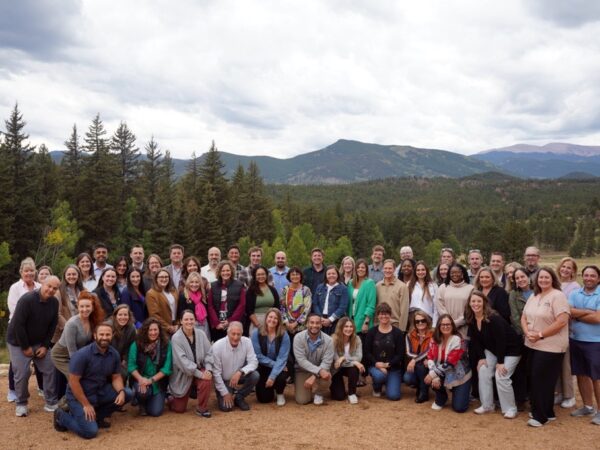Fairbanks Foundation Cohosts Pathways Convening
Institute gathered national stakeholders to discuss shared learnings, collaboration
As states across the U.S. explore professional education and training pathways to expand opportunities and address workforce challenges, the Fundación Richard M. Fairbanks, CareerWise USA, y el Center on the Economics and Management of Education and Training Systems (CEMETS) at ETH Zurich are bringing stakeholders from various states together to learn best practices, share efforts, and align strategies. One potential outcome is the creation of a framework that allows degrees and credentials awarded through pathways such as the Indiana Career Apprenticeship Pathway to be formally recognized by employers and colleges across state lines. Long term, the goal is to substantially increase the number of students who graduate from school or college well-prepared for in-demand careers, thereby helping to address the talent needs of employers and strengthen our communities.
Earlier this week, the Fairbanks Foundation and CareerWise USA co-hosted the inaugural U.S Advanced CEMETS Institute, in partnership with CEMETS. This three-day event gathered stakeholders from Alabama, California, Colorado, Indiana, Maryland, North Carolina, and Utah – all states working to build new professional education and training pathways modeled after Switzerland’s world-renowned Vocational and Professional Education and Training system. Each of the states that sent attendees to the Advanced Institute previously had representatives attend the foundational version: the CEMETS Institute in Zurich, where participants learn from CEMETS leaders about the Swiss system, along with other countries that implement similar systems, while also delving into how their state or country could implement something similar.
Attendees at the Advanced Institute took their work a step forward, focusing specifically on best practices for employer engagement, which has long been identified as one of the primary challenges to building and scaling employer-led education and training pathways. Each state presented cases about their own efforts and plans for the future.
In addition to these case presentations, attendees heard from leaders with the Fairbanks Foundation, CareerWise, and CEMETS about other important components for implementation, including qualifications frameworks that allow professional degrees to be recognized by higher education (and vice versa) and a long-term governance and leadership structure. Several of Indiana’s Industry Talent Association leaders, including Cassie Squillace (Healthcare), Dennis Trinkle (IT/Tech), and PJ McGrew (Advanced Manufacturing and Logistics), joined a panel about how their ITAs are recruiting employers to participate in INCAP, which is being designed and built by CEMETS iLab Indiana. Erica Viar (Ascend Indiana) also shared about the role Ascend Indiana is playing in supporting the successful launch of ITAs in Indiana.
Leadership from CEMETS at ETH Zurich helped plan the Advanced Institute, facilitate team case presentations, and provide implementation recommendations to each state team.
The Fairbanks Foundation has also begun planning for the second U.S. Advanced CEMETS Institute, which will take place in 2026.



